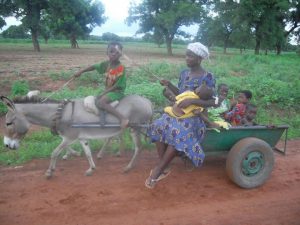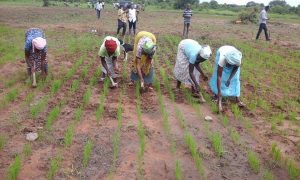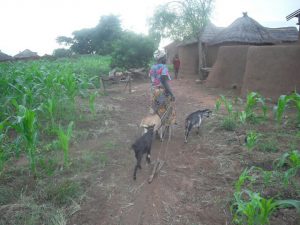
In an era of unpredictable crop seasons as a result of climate change, increasing cost of chemical fertilizer, pesticides, and other farm inputs, some farmers are questioning whether conventional agriculture’s reliance on chemical fertilizers is sustainable, coupled with its negative effects such as pesticide residues, soil depletion and reduced biodiversity.
Today, for hundreds of millions of the world’s smallholder farmers, livestock, a few cattle or maybe a small herd of goats and a flock of chickens are by far the most important household asset. The prominent role of livestock in the lives of smallholder farmers in rural areas cannot be overemphasized.
Climate projections indicate that over the next three decades, in some parts of sub-Saharan Africa, the weather will often be too hot and the growing seasons too short to support existing varieties of important staple crops, such as maize. But how these climatic conditions will affect individual farmers in Africa depends on how they produce food.
Some farmers in the northern region are now testing the prospects of organic farming. Mr Amadu Issah, a peasant farmer at Nayoku, a farming community in the West Mamprusi Dristrict of the northern region, says he has for the past three years been practicing organic farming after several years of conventional practice.
With this, he now harvests between twelve and fourteen bags of corn from an acre, but with the same size of land, using chemical fertilizer, he harvested not more than six bags in the past.

While some farmers are shifting from an organic-by-default system, those without access to industrial fertilizers and pesticides are exploring how to maximize the prospects of the aged long practice.
Madam Aduayiri Christiana, another peasant farmer in the Nayoku community shares her experience. She explained how resource conserving is, using organic manure.
She said “in my first year, I cultivated an acre and harvested nine bags. Out of this, I sold a bag to start a petty trade which I now use to cater for my children’s school needs. The following year, I harvested twelve bags but my colleagues who applied chemical fertilizer to their crops had maximum of five bags.”
Though the practice of organic method is paying off in some parts of West Mumprusi District, more-extensive evidence based and consistent research is needed in other areas.
The Project Manager of ADRA, Isaac Kankam- Boadu believes it is very important to adopt multiple approaches since resource availability and climate conditions differ from place to place.
‘We cannot rely on only organic manure to achieve food security for now since some communities do not rare animals.
Besides livestock farming is not very deep rooted in Ghana to produce as much waste needed to prepare compose. Hence there is the need to adopt multiple approach and technologies in the agricultural sector depending on resources available to them.
Communities members generate a lot of household refuse and has cow dunk and make use of it. However you cannot train someone to use cow dunk when they have no cattle in the community likewise we cannot train people to use chemical fertilizer when they have no penny to buy a bag of fertilizer. But so far, the organic manure has proven to me more profitable,’ he explained.
 Experts say the use of manure or the livestock-crop mix could make farmers more resilient to climate change. This, they attribute to the intermingling of crops with livestock production which often leads to a more efficient use of natural resources.
Experts say the use of manure or the livestock-crop mix could make farmers more resilient to climate change. This, they attribute to the intermingling of crops with livestock production which often leads to a more efficient use of natural resources.Available literature also indicates that livestock can provide a buffer against losses in a particular season. For example, selling a few sheep or goats can help a family overcome a poor grain harvest.
By Alima Bawah, Tamale




